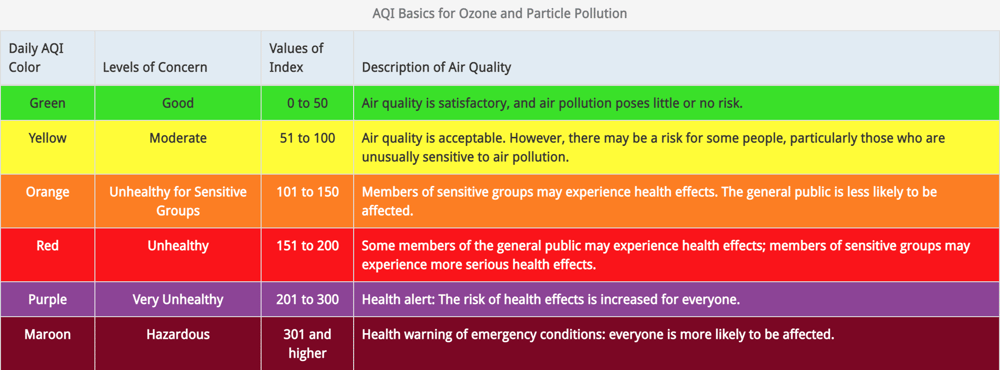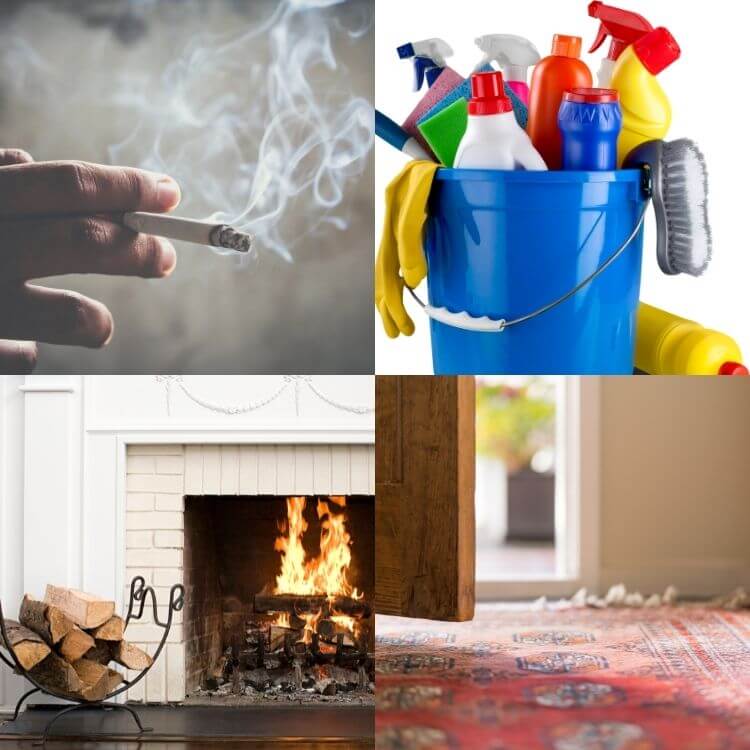If you think allergies are all about the pollen outside, think again. Indoor air quality can have as much to do with allergies and respiratory health as allergy season itself.
There are a number of things that affect the quality of your home’s air indoors. If you want to live your healthiest life, then it’s important to know about all of them — especially if someone in your family has allergies.
Improving indoor air quality starts with cleaning and ends with a quality HVAC system. Here we’ll take a closer look at dirty air and how to fix it.
More about air quality
Since the mid-1900s, the United States has provided air quality ratings for residents of metropolitan statistical areas by using the air quality index. The National Air Pollution Control Administration implemented the air quality index in 1968. Their hope was that by providing more evidence of poor air quality, they could get public officials to take action and decrease air pollution.

The air quality index works on a scale from 0 to 500. A higher number indicates a greater quantity of pollution in the air. High numbers on the AQI can indicate risky conditions for people with allergies and asthma. You’ll often see high numbers in places with lots of traffic or factories, or areas with wildfires.
An AQI value that is below 50 is considered good, healthy air. This is the green category, which indicates little to no risk. The green category is followed by five other AQI categories, which top off in maroon with an AQI value of 300 or higher.
You can easily check the AQI in your area by taking a look at your phone’s weather app, or looking it up online. It’s a good idea for those with bad allergies or asthma to get into the practice of looking up their area’s AQI, so that they can prevent overexposure to heavy pollution.
Whether or not you live in an area with high air pollution, It’s important to make sure that your home’s HVAC system is operating well. This is what will protect your home’s indoor air quality from the pollution in the air outside.
What affects indoor air quality?
There’s more to maintaining clean air indoors than just a regular vacuuming schedule — although that is an important step! Indoor air quality is actually affected by several different elements. Let’s break down the factors that influence the air quality in your home.
Allergens Allergens are any type of antigen that can cause an allergic reaction, where the immune system overreacts to something in the air. Naturally, allergens are responsible for a lot of people’s allergies. Knowing about the possible allergens in your home can help you keep the air cleaner and reduce discomfort for anyone in your family or friend group that suffers from allergies.
One common allergen that is found in many homes are dust mites. These tiny, microscopic pests live in dust and cause symptoms like sneezing, coughing, congestion, and a runny nose.
Families with pets will have animal-specific allergens in their home. You probably don’t have a cat or dog if someone in your family is allergic, but you should know that their urine, saliva, and dander can cause an allergic reaction in many people.
Mold is also a common allergen to watch for both indoors and outside. Inside, mold often grows in damp places like basements, near sinks or showers, or in the soil of houseplants that have been overwatered.
One of the best ways to improve your indoor air quality is by managing allergens. Dust and vacuum regularly, wash towels and sheets often, and clean all the showers, tubs, and sinks in your home once a week. If you have a pet and experience any degree of allergic reaction to their dander, consider keeping them out of your bedroom. By eliminating allergens, you can start to seriously improve your indoor air quality.
Chemicals and scents Although cleaning is essential to reducing allergens, watch what type of cleaning solutions you use. Allergies are different for everyone, but it’s very common to experience an allergic reaction from different scents and chemicals.
Cleaning products, however, aren’t the only things to produce scent-related pollution. Smoke from cigarettes, fireplaces, cooking, or other sources can also pollute indoor air, as do gas fumes that could enter from an attached garage or a gas stove.
Outdoor air pollution Any type of gas or particle that is differentiate from the air we breathe counts as air pollution. Outside, this is often emissions from cars, pollen from plants, mold, dust, or smoke. When the outdoor air quality is bad, it can severely worsen allergies and asthma.
Every time you open a window or door to your home, you let in some of the outdoor air. In some cases, this can be used as a way to improve indoor air quality. But, if you live in an urban area or near a factory, you may be inviting even more allergens into your home with an open window.
More tips for improving indoor air quality in your home
The first step to reducing triggers for allergies in your home is eliminating as many allergens as you can. You’ll do this by identifying the sources and creating a cleaning routine that will minimize their presence.
However, there are some things you should do with your HVAC system in order to help remove any remaining allergens from the air. For one thing, make sure that you’re changing your HVAC’s air filters as often as is recommended. How often you should change the filter will depend on things like how many people live in your home and whether or not you have pets.
You should also be sure to have your HVAC system serviced once a year. This will ensure that the system is running as efficiently as possible, and keeping the indoor air clean in the process. You can get your home’s ductwork cleaned annually as well in order to reduce the amount of allergens that are circulated through the air.
Talk the the Indoor Air Quality Experts at The Geiler Company.



